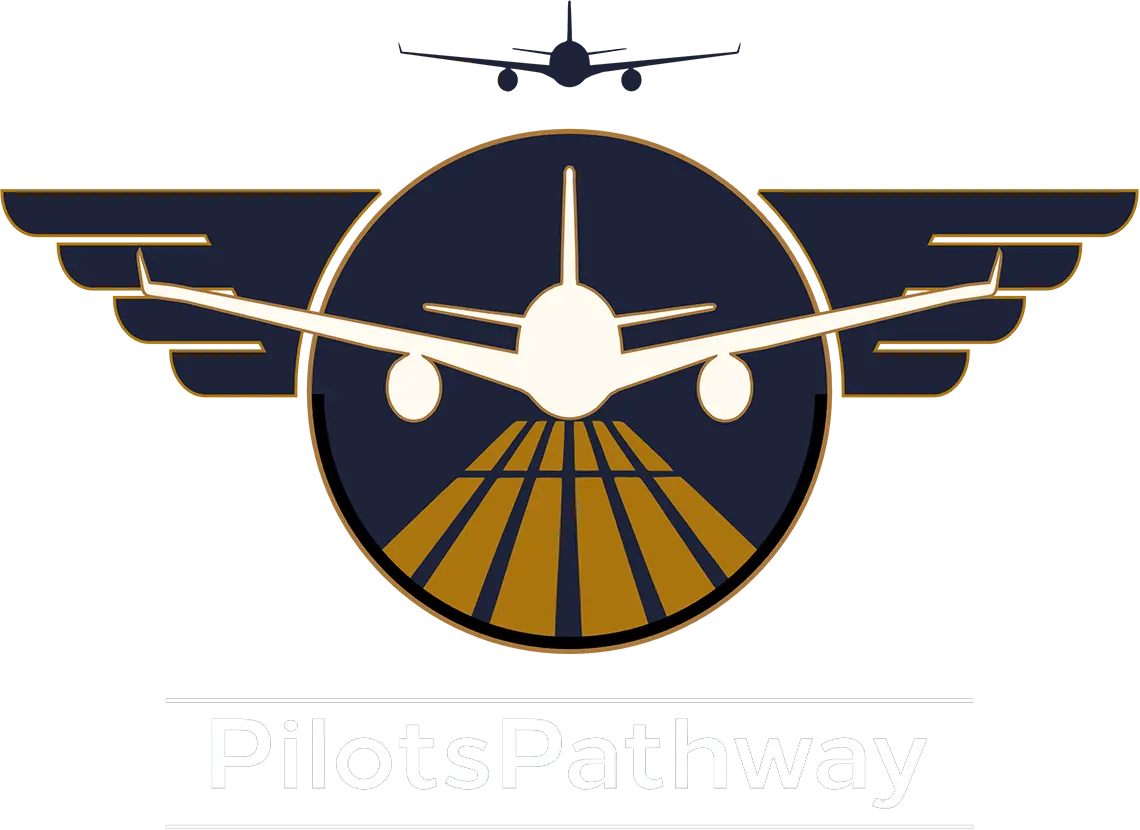When you dream of becoming a pilot, the first thought that comes to mind is flying an aircraft high up in the sky. But before you can actually sit inside a cockpit, there are certain rules and requirements that every aspiring pilot has to fulfill. One of the most important among them is the DGCA medical requirement.
The Directorate General of Civil Aviation (DGCA) is the governing body of civil aviation in India. It makes sure that pilots are medically fit to fly. After all, flying an aircraft is not like driving a car. The safety of passengers and the aircraft depends on the health and alertness of the pilot. That is why medical fitness is one of the first and most essential steps in the journey of becoming a pilot.
Now, if you are planning to start your pilot career, you must have heard about Class 1 Medical and Class 2 Medical. Many students feel confused about what these two medicals mean, how they are different, and which one is required first. In this blog, we will break it down for you in a very simple way so that you clearly understand the DGCA medical requirements and know exactly what to do.
Why Are DGCA Medicals Important?
Pilots constantly face physical and mental stress while flight operations occur. Sitting long hours, being up high, constant concentration, bonded with sudden decision-making can put pressure on the body or mind. If a pilot is ill, the one who loses is the passenger and crew.
This is why DGCA accepts only those who are medically fit into flying. The medical tests evaluate various health parameters such as:
Vision (eyesight and color vision)
Hearing
Heart condition (ECG, BP, etc.)
Neurological status
General physical fitness
So, these medicals of DGCA are a safety check for pilots and passengers alike.
What is a Class 2 Medical?
The Class 2 medical is usually the first medical examination that a student pilot undergoes. It is like the entry point into aviation. If you want to apply for a Student Pilot License (SPL) or join a flying school, you will need a valid Class 2 medical certificate.
Who conducts Class 2 Medicals?
The DGCA has authorized certain doctors all over India to conduct Class 2 medical examinations. These doctors are known as DGCA empaneled Class 2 medical examiners. You can check the list of authorized doctors on the DGCA website.
What does the Class 2 Medical include?
Physical Examination – Height, weight, blood pressure, pulse, and so forth.
Vision Test – Eye Test including Color Vision.
Hearing Test – Audiometry to Determine Hearing Levels.
Blood and Urine – Testing for General Health Condition.
Chest and ECG – To Check Heart and Lung Health.
After the tests are done, the doctor sends your medical reports to DGCA, and DGCA issues your Class 2 medical assessment.
Validity of Class 2 Medical
For young student pilots (under 40 years of age), the Class 2 medical is generally valid for 2 years. But as you get older, the validity period becomes shorter, and you may need renewal more frequently.
What is Class 1 Medical?
Once you complete your initial training and want to apply for a Commercial Pilot License (CPL), you need to upgrade your medical to Class 1. This is a more detailed medical examination because commercial flying demands a higher level of physical and mental fitness.
Where is Class 1 Medical done?
Unlike Class 2, Class 1 medicals can only be conducted at DGCA-approved medical centers. Some of the common centers are:
Air Force Medical Boards (IAM Bengaluru, AFCME New Delhi, etc.)
Select DGCA-approved hospitals
You cannot just go to any local doctor for Class 1. It has to be done at an official DGCA medical center.
What does Class 1 Medical include?
The Class 1 medical is far more detailed than Class 2. It includes:
All tests from Class 2 Medical – Vision, hearing, blood, urine, X-ray, ECG.
ENT (Ear Nose Throat) Examination – Thoroughly examination of the ears and sinuses.
Neurology Examination – To check brain reflexes.
Psychological Screening – To check if sane and able to make decisions.
Special Tests (if required) – MRI, treadmill test, or any other advanced medical test in case a concern is seen by the doctors.
After the medical tests, your reports are forwarded to DGCA, and you are issued a Class 1 Medical Assessment.
Validity of Class 1 Medical
For pilots below 40 years: Valid for 1 year.
For pilots above 40 years: Valid for 6 months.
This means every commercial pilot must keep renewing their Class 1 medical regularly to stay eligible to fly.
Difference Between Class 1 and Class 2 Medical
Many students get confused about which medical to do first and how both are different. Let’s make it simple by pointing out the main differences:
Who needs it?
Class 2: Students applying for SPL or starting flying training.
Class 1: CPL applicants and professional commercial pilots.
Where is it done?
Class 2: Conducted by DGCA-empaneled doctors across India.
Class 1: Conducted only at DGCA-approved medical centers like IAM or AFCME.
Tests involved
Class 2: Basic health tests like eyesight, hearing, blood and urine reports, X-ray, and ECG.
Class 1: Includes all Class 2 tests plus ENT, neurological, and psychological examinations.
Validity
Class 2: Up to 2 years for younger pilots (less as age increases).
Class 1: 1 year for pilots under 40 years, 6 months for pilots above 40 years.
Purpose
Class 2: To check basic fitness and allow students to begin training.
Class 1: To confirm professional fitness for commercial flying.
In short, Class 2 is the entry medical for students, while Class 1 is the professional-level medical for commercial pilots.
Which Medical Should You Do First?
This is one of the most common questions asked by aspiring pilots. The answer depends on where you are in your aviation journey.
If you are just starting and want to join a flying school → Start with Class 2 medical.
If you are close to finishing training and applying for CPL → Upgrade to Class 1 medical.
However, some students directly go for Class 1 medical in the beginning itself. This way, they already know whether they are fully fit for commercial flying. It saves time and avoids disappointment later if a medical issue is found. Choosing the best pilot training institute in India will also help guide you through the right process, ensuring you take the correct medical step at the right stage of your journey.
Tips for Clearing DGCA Medicals
Many candidates tend to panic before their DGCA medicals. But one should never give in to panic. With a little preparation, DGCA medicals can be cleared easily. Here are some tips:
Keep Healthy – Eat well, exercise, and get enough sleep.
Avoid Bad Habits – Smoking, alcohol consumption, or any kind of drug intake has an adverse effect on the results.
Check Your Eyesight – Carry your eyeglass prescription if you have one, and make sure that your vision conforms with DGCA standards.
Keep Calm – Being anxious will only increase your blood pressure. Stay calm all through the check-up.
Carry All Documents – Aadhaar card, passport, medical records, if any.
Remember, DGCA medicals are not designed to fail you. They are only there to make sure you are healthy and safe to fly.
The Role of Training Institutes
While clearing medicals is the first step, you also need proper training to become a professional pilot. This includes both flying training and ground training. Ground classes are very important because they prepare you for DGCA exams in subjects like Air Navigation, Meteorology, Air Regulations, and more.
This is, therefore, what makes aligning for the right and best training institute an important thing to do in India. A competent institute is going to help in the flying lessons and paperwork and DGCA formalities along with assisting you in the medical procedures.
Conclusion
Being a pilot is a dream career. But just like any career, it requires effort, preparation, and the right requirements to be met. The DGCA medicals-Class 1 and 2-form the basis of your pilot journey.
Class 2 helps you start flying as a student.
Class 1 qualifies you for commercial flying.
Both are equally important milestones that you cannot skip. If you are serious about becoming a pilot, plan your medicals early and keep yourself fit. In addition to saving time, it will help increase the level of confidence in flying.
In the end, medicals are just one part of your training. What truly shapes your career is the training and guidance you receive. If you wish to get proper support, expert ground classes, and professional flying training, always look for trusted institutes. The best dgca ground classes in India along with world-class flying training can make your dream a reality. And for that, you can always rely on PilotsPathway.

